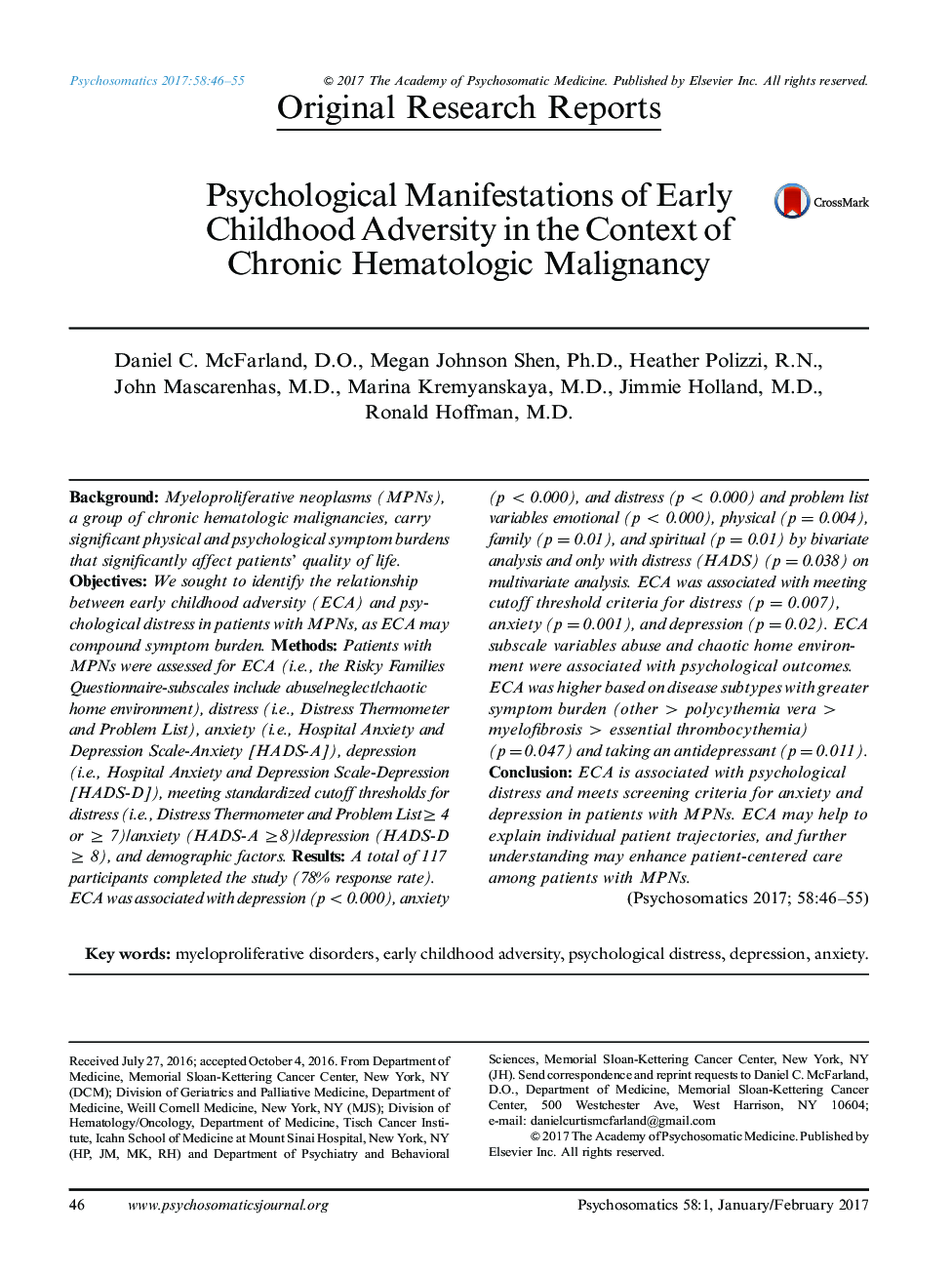| Article ID | Journal | Published Year | Pages | File Type |
|---|---|---|---|---|
| 4934731 | Psychosomatics | 2017 | 10 Pages |
BackgroundMyeloproliferative neoplasms (MPNs), a group of chronic hematologic malignancies, carry significant physical and psychological symptom burdens that significantly affect patientsʼ quality of life.ObjectivesWe sought to identify the relationship between early childhood adversity (ECA) and psychological distress in patients with MPNs, as ECA may compound symptom burden.MethodsPatients with MPNs were assessed for ECA (i.e., the Risky Families Questionnaire-subscales include abuse/neglect/chaotic home environment), distress (i.e., Distress Thermometer and Problem List), anxiety (i.e., Hospital Anxiety and Depression Scale-Anxiety [HADS-A]), depression (i.e., Hospital Anxiety and Depression Scale-Depression [HADS-D]), meeting standardized cutoff thresholds for distress (i.e., Distress Thermometer and Problem List⥠4 or ⥠7)/anxiety (HADS-A â¥8)/depression (HADS-D ⥠8), and demographic factors.ResultsA total of 117 participants completed the study (78% response rate). ECA was associated with depression (p < 0.000), anxiety (p < 0.000), and distress (p < 0.000) and problem list variables emotional (p < 0.000), physical (p = 0.004), family (p = 0.01), and spiritual (p = 0.01) by bivariate analysis and only with distress (HADS) (p = 0.038) on multivariate analysis. ECA was associated with meeting cutoff threshold criteria for distress (p = 0.007), anxiety (p = 0.001), and depression (p = 0.02). ECA subscale variables abuse and chaotic home environment were associated with psychological outcomes. ECA was higher based on disease subtypes with greater symptom burden (other > polycythemia vera > myelofibrosis > essential thrombocythemia) (p = 0.047) and taking an antidepressant (p = 0.011).ConclusionECA is associated with psychological distress and meets screening criteria for anxiety and depression in patients with MPNs. ECA may help to explain individual patient trajectories, and further understanding may enhance patient-centered care among patients with MPNs.
